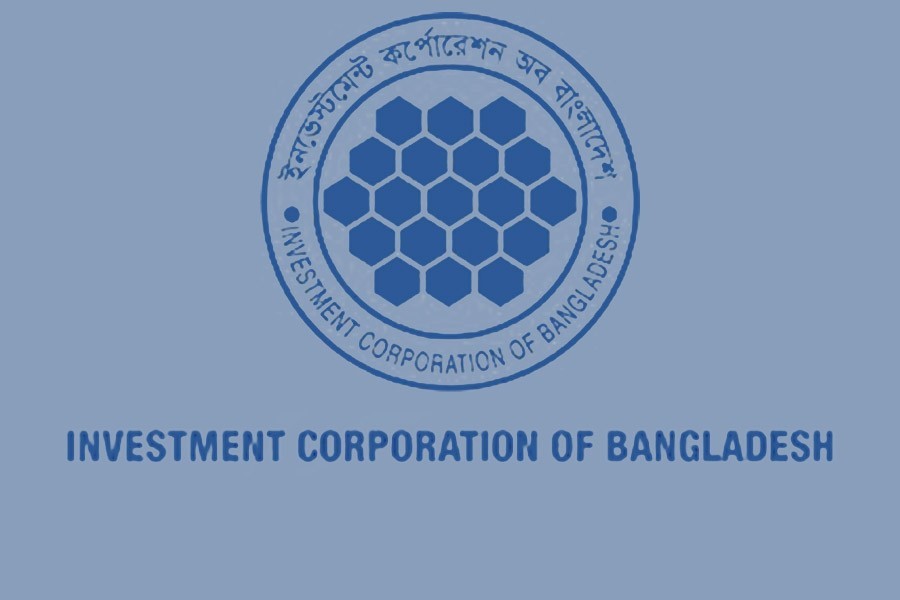The securities regulator will submit a report by December as part of the government move to restructure the state-run Investment Corporation of Bangladesh (ICB) and its subsidiaries.
To this effect, the Bangladesh Securities and Exchange Commission (BSEC) has already invited tenders to pick a qualified consulting firm with intent to assess the ICB's overall operations.
"The restructuring will be implemented based on the BSEC report containing the consultant's suggestions. The report is due to be submitted by December next," said BSEC chairman Prof Shibli Rubayat Ul Islam.
The government has decided to revamp the corporation against the backdrop of its deviation from its mandate and the current stalemate, he told the FE.
The issues such as ICB's role in securities market, state of its financial and non-financial resources, governance, organisational and legal structure and manpower capacity, among others, will be thoroughly assessed.
Finally, the consulting firm will analyse its role in the light of the similar type of entities globally.
The consultancy firm will also see whether the ICB's resources are being utilised properly or not.
When asked, ICB managing director Md Abul Hossain said the corporation witnessed an erosion in the portfolio value following a continuous slide in the stock market indices.
"The ICB started injecting funds into the market when Dhaka Stock Exchange's broad index was above 8,000 points. Now the index is below 5,000 points," Mr Hossain said.
He hailed the government's restructuring plan, saying it will be positive for the ICB and the capital market.
According to Mr Hossain, the ICB with over Tk 7.67-billion paid-up capital has so far invested more than Tk 125 billion in the market. The corporation took Tk 107billion in loans until January last from different organisations and capital market refinancing scheme to support the market.
Amid a declining trend of the capital market, the ICB has been paying interest on the loans.
The ICB drew flaks several times because of its alleged investment in a large number of junk shares.
Stock of a number of junk companies were transferred to over-the-counter (OTC) market.
The ICB was established on October 01, 1976, under the Investment Corporation of Bangladesh Ordinance-1976 to accelerate the pace of industrialisation and develop an organised and vibrant capital market, particularly securities market, in Bangladesh.
The ICB, whose slogan is 'Transforming Towards Tomorrow', earlier sought funds from the government at minimum interest to repay high-interest bearing loans taken from different institutions.
BSEC chief Prof Islam said after getting the consultant's report, the BSEC will submit its own report to the government by December this year.
"The government's objective is to ensure a time-befitting role of the corporation."
The ICB, which was listed with the stock exchange in 1977, previously reported hefty profits and distributed lucrative dividends to its shareholders.
It reported net profits ranging from Tk 3.31 billion to Tk 4.61 billion during fiscal year (FY) 2014-15 to FY 2017-18.
The ICB's net profit fell 85 per cent to close at Tk 601 million in FY '19 and incurred losses for the past two consecutive quarters ended by December 2019 due to an 'decrease' in capital profit and 'increase' in loan interest.
It reported a consolidated loss of Tk 0.62 per share for July 2019-March 2020 as against the EPS (earnings per share) Tk 0.90 for July 2018-March 2019.
According to a description of the securities regulator, the spirit of formation of the ICB was to assist the capital market.
"For the past several years, especially in FY 2018-19 and FY 2019-20, the ICB has been incurring losses and thereby losing equity," according to the BSEC.
It said the ICB's situation has worsened for its failure to collect debt from manufacturing industries and non-banking financial institutions which are not directly related to capital market.
In many cases, the ICB financed stocks of many companies and eventually became directors of companies.
While holding this position, the ICB could not sell its portion of stocks when its portfolio was in profitable stage.
"The ICB couldn't sell shares due to lock-in status of the stocks. This has significantly reduced the ICB's portfolio value," said the securities regulator.
Even though the government subsidy package has been given to capitalise the ICB, yet the situation has not improved.
"At this moment, the government needs to assess whether subsidising the ICB will be appropriate or not," according to the BSEC.
The ICB has three subsidiaries-ICB Capital Management, ICB Asset Management Company and ICB Securities Trading Company.
It is also managing the largest-ever open-end mutual fund, ICB Unit Fund, having an estimated Tk 40 billion.
The government owns the highest amount of stakes in the ICB.
It has 27 per cent shares in the ICB while state-owned commercial banks 22.73 per cent, state-owned insurance corporations 12.36 per cent, development financial institutions 25.63 per cent, denationalised private commercial banks 9.10 per cent, mutual funds 0.80 per cent, private commercial banks and other institutions 0.81 per cent and general public 1.57 per cent as of June 30, 2019.
The ICB's share price closed at Tk 100.30 each on the DSE on Thursday.


